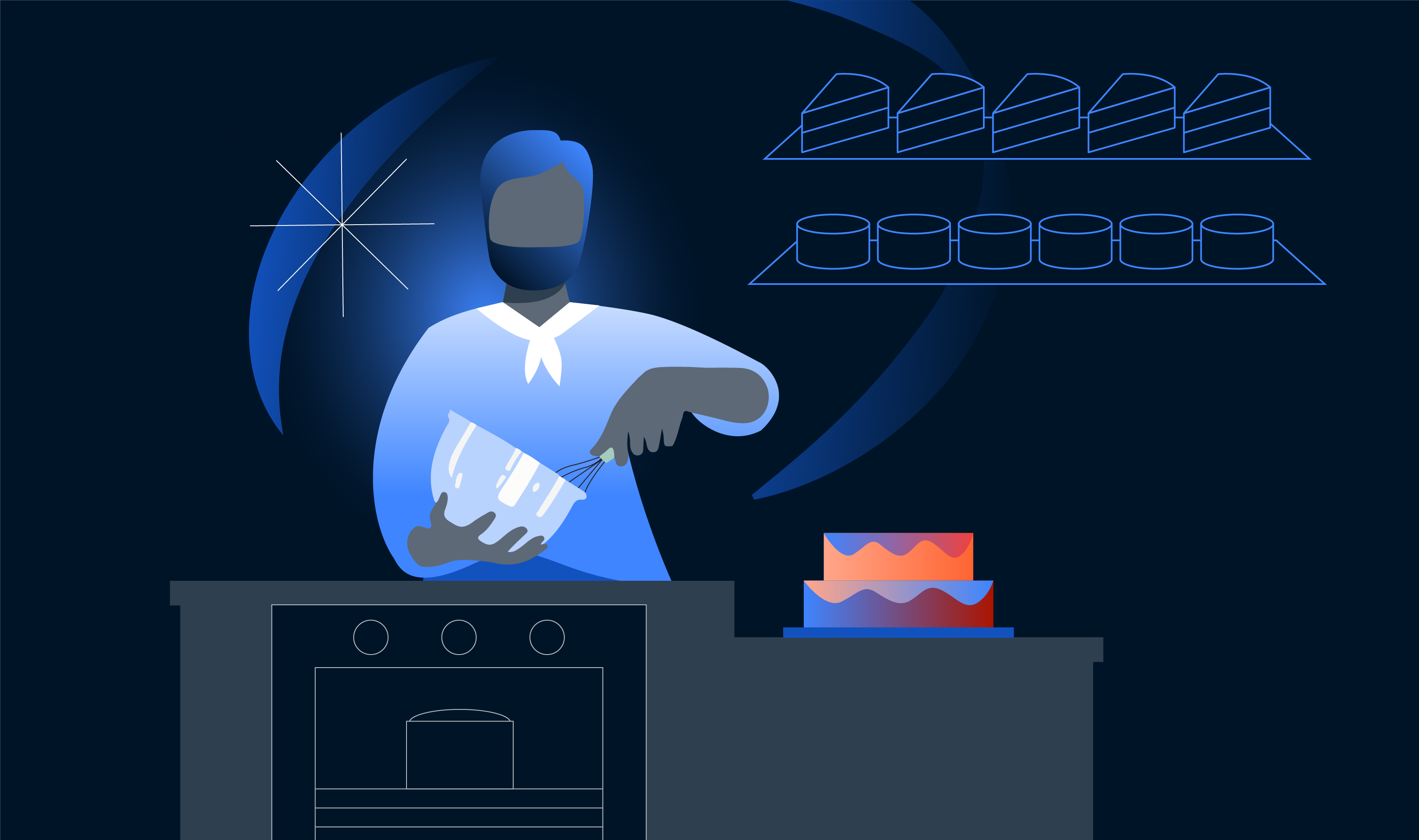As a follow-up to my previous blog, Navigating the IT world: a QA’s perspective, I thought the next best thing to talk about would be what to expect when you decide to embark on a journey as QA in the IT sphere.
I mentioned before that you can start your career as a manual tester or you can become an automation tester. In my personal opinion, having a good foundation of the basics, i.e., manual testing, can be very advantageous. For example, if you wanted to become a professional baker, you wouldn’t start your career by baking a seven-layer wedding cake with all the bells and whistles, would you? No, you would rather start off by mastering the fundamentals, like a good old classic vanilla cake, and then perfect your skills and knowledge around that. The same rules apply to testing. To have a good and solid foundation of what is required from a great tester, you first need to delve into the world of manual testing.
So, to give you more insight into this, and to quote Julie Andrews, “Let’s start at the very beginning, a very good place to start …”, or as I’d rather say, let’s start with the good …
As a tester, it’s important to have an eye for detail as well as a curious mind. They say that “curiosity killed the cat”, but I believe that “curiosity saved the software”. Breaking the system is basically your number one priority.
"I believe that 'curiosity saved the software'. Breaking the system is basically your number one priority."
This refers to finding the vulnerabilities in the system. Vulnerabilities are the areas that can cause the system to fail and not work as expected, leading to a bad user experience. We want to find these “bugs” and report them to the development team so that they can fix them as soon as possible. If you can break the system, it means the end user can also break it, and we definitely don’t want that. Our goal is to make the product that the end user uses as stable as possible. Note that I didn’t say that our goal is to make the software/product bug-free, as this is not a realistic goal. No software will ever be 100% bug-free, and it’s important to accept that from the get-go. That doesn’t mean we don’t give our all to make it as “bug-free” as we possibly can. If you want to learn a bit more about this topic, go give Unleashing Perfection: The Seven Principles of Software Testing a read.
Another soft skill that will take you far in the QA space is a willingness to learn. Because the IT world is evolving at a rapid pace, it will help a lot if you are someone who is willing to learn and move with the times. Gaining industry and field knowledge can be so enriching and possibly open up career avenues you never even considered.
In addition to these two skills, there is a third and very important soft skill you will need. Communication! As a QA, you will need to communicate with all the members of your team whether it is a discussion with a developer about a bug you found or maybe a quick chat to get more clarity around the acceptance criteria for a new feature. And speaking of team, that’s one of the best parts of being a QA. Depending on the structure of the organisation you work for, you might get the opportunity to work in a feature team.
A feature team consists of all the necessary individuals/roles that are needed to make a product/feature/service come to life.
You get the Project Manager (or PM) who is in charge of ensuring that the product meets its goals and that the team stays on track. Then you get the Product Owner (or PO) who, like the QA, has the most knowledge about the product/service being developed. It is their job to guide the team in the direction that the business wants the product to grow. On the more creative side, you get your designers and user experience and user interface (UX/UI) researchers. These individuals play a crucial role in the creation of any product or service. Then you get your technical crowd. This crowd can be quite versatile, but for the most part, there will be a back end developer, front end developer, and sometimes a mobile developer. These individuals will become some of your closest colleagues. Building a good relationship with the developers in your team is crucial because you will be working closely with them.
There are also other, perhaps less pleasant, things you need to consider before making your move. So let’s discuss the “scary” parts…
I hope I didn’t put you off by saying the word “scary”? The truth is, any new environment can be intimidating. And the IT industry is ever-changing and to some people, that can be quite scary. But let me assure you, it can be just as exciting!
"Just like time, technology doesn’t stand still for anyone, and the reality is that if you don’t move along with the changes, you might fall behind."
Staying up to date on the latest and greatest can only be to your advantage. For example, “AI” (artificial intelligence) is a hot topic at the moment, and if you say the words “ChatGPT” I can guarantee you that most people will know what you are talking about. Here’s a link if you want to know more about ChatGPT.
Something else that can be very scary, and that appears often in various companies, unfortunately, is a toxic or bad company culture and work environment. We don’t always think about the culture and ways of work of a company when going for that all-important interview, but with the fast pace of our lives today, company culture plays a massive role, one that is much ,bigger than it was a mere 10 years ago. You spend at least 8 hours of your day working, so look for a company that not only talks about having a great culture, but also puts those “words” into action. I can honestly say that Polymorph is one of the best examples I’ve come across in my career of a company that lives and breathes the culture they speak of. Being people focused is part of their core values: “Human to the core” and “There is no ‘i’ in Polymorph”. And working for a company that truly lives by these values makes all the difference.
And lastly, the opportunities and possibilities …
As I mentioned before, the IT industry is ever-changing from one year to the next. And there are so many opportunities both within and outside of testing. Maybe a year into testing, you realise that you enjoy research and business processes a lot more than quality assurance. Then becoming a Business Analyst will be the way to go. Maybe you fall in love with the growth and journey of the product, then becoming a PO will be the best avenue for you. These are just a few of the possibilities outside of testing that the IT industry has to offer. But should you decide that testing is your passion and it’s what you want to do, then becoming an expert in your field is the best way forward.
This road can also take different forms. For example, you can work towards being a manual tester with an automation skill set, or you can work your way up to becoming a QA lead or line manager.
Being a QA lead or line manager is such a great role as you get to lead your team and help them to grow in their respective areas of interest. At Polymorph, we have a top-class QA lead. He has bi-weekly one-on-one sessions with us where we talk about our career goals and how we are progressing on our projects. We also have a session every second week called “lean coffee”, where we check in with each other and also do some knowledge sharing. This helps us to stay in touch with the rest of the QA team. Don’t ever underestimate the power of having a good lead as it can make all the difference.
So, in a nutshell, the IT world might be changing, but that’s a good thing. And yes, there may be scary areas as well, but you will always have individuals alongside you to help and assist you, and that makes this career path great!





